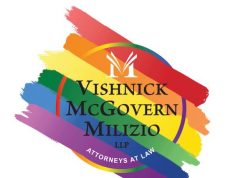
A GUEST OPINION PIECE BY PERRY N. HALKITIS | Last year on Election Day, I took the subway to the Consulate General of Greece in New York City to pick up my first-ever Greek passport. It marked the culmination of a tedious but meaningful four-year process to claim my citizenship in the homeland of my late parents, who emigrated from Greece to the United States in the 1950s in pursuit of a better life.
Like so many immigrants before them—from the Irish to the Italians to the Chinese—they encountered xenophobia and discrimination that challenged their health, even from other immigrant groups who had arrived earlier. I remember more than once being told in my own Queens neighborhood of Astoria to, “Go back to your country.” It’s a familiar refrain in America’s long tradition of turning on its newcomers.
The same day I picked up that Greek passport, millions of Americans went to the polls in a deeply consequential election. I left the consulate a proud dual citizen, but with a heavy heart (dreading the likely return of Donald Trump). The outcome signaled to me that many of my fellow Americans—fueled by fear, ignorance, and a dangerously weaponized religious fervor—would once again choose hatred over competence. Many rejected a highly qualified Black and South Asian woman in favor of a man who has repeatedly degraded our democracy, scapegoated marginalized people, and undermined public health.
Among his most zealous supporters are members of my own Greek American community. At a holiday dinner in late 2023, I confronted a painful truth: The same culture that gave me language, music, and tradition also produced a Greek American acquaintance who couldn’t understand my support for “old man Biden” and instead praised another MAGA glorifier, Ron DeSantis. As a gay man and an infectious disease epidemiologist who has devoted his career to LGBTQ+ health, I found the conversation intolerable. I cut ties shortly thereafter.
DeSantis isn’t alone in this weaponization of religion. Many in the GOP MAGA world have manipulated the words of God and religious leaders to their own political advantage. Sadly, this hits too close to home. The leader of the Greek Orthodox Church in America, Archbishop Elpidophoros, has praised and appeared alongside Trump, even at the 2024 Republican National Convention.
As a Greek and Greek American, I have seen this contradiction up close. The same Church that blessed my parents’ marriage and nurtured our community in Queens now lends its voice to leaders who scorn LGBTQ+ people, dismiss public health, and glorify cruelty. In Greece, progress toward equality is real—even hard-won—but still obstructed by a religious hierarchy intent on clinging to its power. In America, diaspora leaders invoke Orthodoxy as cover for aligning with demagogues who endanger the health of millions.
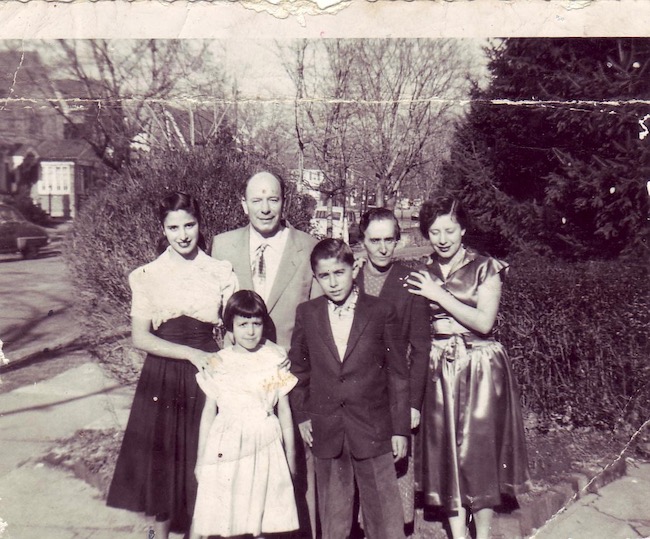
That visit to the consulate marked a turning point. I was no longer just Greek American; I was now also Greek. And soon, I would return to Greece not as a visitor, but as a citizen, ready to immerse myself in a society that—though imperfect—strives toward values I hold dear, with the hope of spending much more time there as I enter the golden years of my life.
By contrast, too many immigrant diaspora communities like my own remain trapped in a nostalgic fantasy, clinging to outdated mid-20th-century cultural and religious dogmas that distort rather than honor the living homeland. Worse still, they have rallied behind an autocrat whose venomous rhetoric corrodes democracy and ensures that America grows not stronger, but weaker; sicker; more divided.
This isn’t unique to Greek Americans. Across immigrant communities, second- and third-generation children often fiercely defend the traditions that once lifted their families up but now hold others back. As articulated brilliantly in author Will Storr’s The Status Game, maintaining one’s status often involves denying others the very opportunities that enabled your own rise. When I told that Greek American acquaintance I’d gladly pay more taxes to expand health care access for people like my brother—who lives with progressive multiple sclerosis and relies on public health programs—he was appalled. Those in need, he said, were “freeloaders.” His empathy had curdled into individualism, cloaked in the language of religion and respectability—fueled by the insecurity in his own social status.
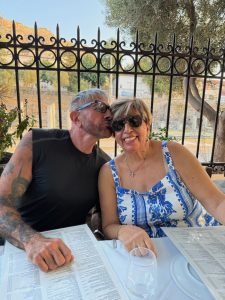
In July of this year, I returned to Greece with my beloved Aunt Catherine. I hoped the country of my ancestry might offer a reprieve from the intertwined cultural schism, religious fanaticism, and political toxicity enveloping the U.S. At first, it did. Strolling through Athens, sharing meals with family and friends, chatting with strangers in cafés and markets—I felt renewed. I spent time with friends old and new—Panos, Tatiana, Niko, Spiro, Kosta, and Mary—whose warmth reminded me of the Greece my parents cherished. Niko, in his contempt for Trump-supporting Greek Americans, made me think, “Here is a true Christian.”
But that optimism was short-lived. Even in my ancestral homeland, during Pride celebrations in Athens and Thessaloniki, clergy and congregants from the Greek Orthodox Church lined the streets in protest. Even after 2004’s historic legalization of same-sex marriage in Greece—achieved despite the Church’s opposition—the institution continued to rail against LGBTQ+ rights. Panos told me that PrEP, a life-saving HIV prevention medication, had only recently become available, citing administrative delays since 2022. Many believe the Church’s interference delayed its rollout—reminiscent of Texas judge Reed O’Connor’s ruling that allowed employers to deny PrEP coverage to workers, despite years of medical approval.
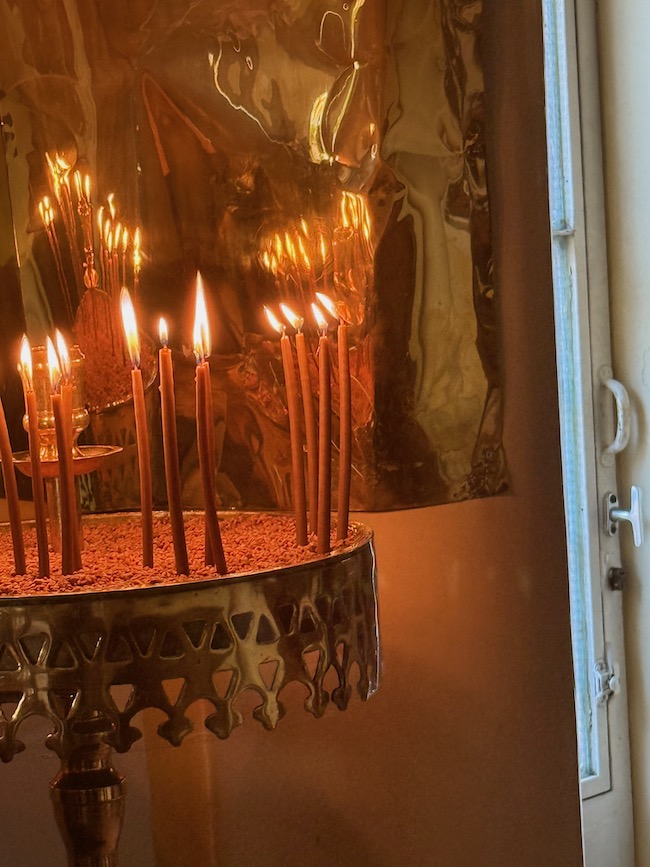
I’ve experienced this brand of religious weaponization from my church firsthand. At my mother’s 40-day memorial, the priest delivered a scathing homily against marriage equality, glaring at me and my husband in the pews. At another service, a priest at St. Nicholas in Flushing warned congregants to donate more or risk “the infidels”—his term for Muslims—buying nearby land to build a mosque.
And yet, I cherish my Greek heritage and my faith. My home is adorned with icons. I light candles in churches, including the Holy Metropolitan Cathedral of the Annunciation in Athens. I pray. I believe in the spiritual nourishment and moral grounding that religion can offer. But I also believe—fervently—that religion, like science or politics, is a social construct. When used to heal, it can elevate us. When used to harm, it becomes a weapon.
The data clearly demonstrates that religious engagement can benefit mental and physical health. But when religion is twisted into a tool of hate, it justifies cruelty, and corrodes public health. We see it in the rejection of LGBTQ+ youth, the rollback of reproductive rights, and the politicized resistance to pandemic science. In every case, weaponized religion transforms preventable illnesses into crises, turning health from a shared good into a moral battleground.
In my forthcoming book, I explore how misinformation, belief systems, and ideology shape the health of individuals and populations. Too often, public health zeroes in on pathogens and ignores people. We must expand our lens. We must confront religion—not faith itself, but its strategic exploitation—as a powerful social determinant of health. This isn’t limited to Orthodoxy. Mormon, Evangelical, and other religious leaders have handed their pulpits to purveyors of hate. In doing so, they have become complicit in the erosion of our collective well-being.
So yes, I remain a man of faith. But I am also a man of science, of reason, of compassion. And I say this without hesitation: When religion is hijacked to divide, exclude, and harm, it ceases to be sacred. It becomes a poison. To honor the best of Greece and America alike, we must reject the manipulation of religion as a political tool, and insist that faith, like public health, serve its true purpose: To heal, to sustain, and to uplift us all.
Perry N. Halkitis, Ph.D., M.S., M.P.H. is the Dean, Hunterdon Professor of Public Health and Health Equity, and Distinguished Professor at the Rutgers School of Public Health. His forthcoming book–Humanizing Public Health: How Disease-Centered Approaches Have Failed Us–wil be released on May 6, 2026 by Johns Hopins Universiy Press.
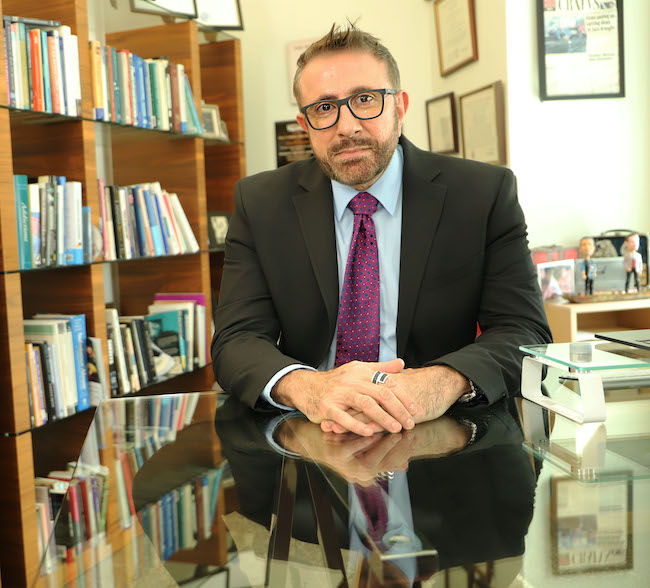
—END—
LGBTQCommunityNews.nyc is an independent, free source of queer-centric news, arts, info, and opinion content. Our website, podcast, and quarterly newspaper are funded by advertising revenue and reader donations. To support this project, click here for the GoFundMe campaign. Questions? Comments? Click here to contact us. To join the subscriber list of our free ENewsletter, click here.




